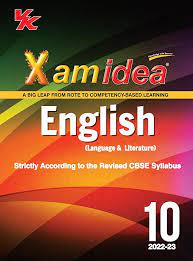
Exam Ideas English Publish Date : 29/07/2023
ALGAE
TRUE AND FALSE
1. Gametes of Ulothrix are quadriflagellate:
Ans. False
2. Chlorella occurs as an endozoic alga inside Euglena:
Ans. False
3. Fusion of two vegetative cells of Chlamydomonas is called hologamy:
Ans. True
4. Vohox is a colonial, fresh water algae:
Ans. True
5. Cladophora species occurs in fresh water as well as in sea water:
Ans. True
6. The algae Chlorella and Scendesmus are the rich source of N. P. K.:
Ans. False
7. The plants of Cladophora crispate are epizoic:
Ans. True
8. Carrageenin is used for checking bleeding:
Ans. True
9. The androphore and antherozoids in Oedogonium are multiflagellate:
Ans. True
10. Anabaena can be used in space for providing oxygen:
Ans. False
11. The macrandrous species of Oedogonium may be monoecious or dioecions:
Ans. True
12. The zoospores in Oedogonium are multiflagellate:
Ans. True
13. Chlorophyll C occurs in the mebers of Xanthophyceae:
Ans. True
14. The cells of Oedogonium are multi nucleate with a reticulate chloroplast:
Ans. False
15. Chlorella yields a food called carrageerin:
Ans. False
16. The diatoms have chlorophyll C:
Ans. True
17. Some red algae show depositions of calcium carbonate in their cell wall:
Ans. True
18. The heterocysts of blue–green algae show eukaryotic cell organization:
Ans. False
19. The cells of Chlorella have riboflavin and folic acid:
Ans. True
20. Dinoflagellates lack association of basic proteins with DNA in their nucleus:
Ans. True
21. An alga Cephaleuros grow as parasitic on coffee leaves:
Ans. True
22. Zoochlorella occurs as endozoic alga inside the Hydra:
Ans. True
FILL IN THE BLANKS
1. In Ulothrix gametes are ………..:
Ans. Biflagellate
2. The similarty between blue–green algae and bacteria in their nuclear organization is similar …………..:
Ans. Nucleoid or genophore (incipient nucleus)
3. Spirogora reproduces by gametes which are ……………..:
Ans. Aplanogametes (Non–Motile isogametes)
4. Ground becomes slippery in rainy season due to ……………….:
Ans. Blue–Green Algae
5. Carageenium is obtained from …………….:
Ans. Chondrus crispes (Red Algae)
6. Agar–agar is obtained from the members of …………..:
Ans. Red Algae
7. Iodine is obtained from ………….:
Ans. Laminaria
8. Pioneer to point out the significance of blue–green algae in relation to nitrogen fixation is ………………:
Ans. P. K. D. e.
9. Fucoxanthin pigment is found in ………..:
Ans. Brown Algae
10. In algae embryo is ……………. Present:
Ans. Not
11. The members of ……… can fix up atmospheric nitrogen:
Ans. Myxophyceae
12. Heterocyst are found in ……….:
Ans. Blue–Green Algae
13. Shape of chloroplast in Spirogyyra is …………….:
Ans. Spiral
14. Capacity of blue–green algae to change colour with light is called ……………..:
Ans. Gaidukov phenomenon
15. Food is stored in the form of mannitol in …………:
Ans. Pheophyceae
16. …………. is a protein body with starch envelop:
Ans. Pyrenoid
17. Amylum stars are found in …………:
Ans. Chara
18. …………. is known as umbrella plant:
Ans. Acetabularia
19. Alfred nobel used …….. for absorbing nitroglycerine:
Ans. Diatomaceous
20. The thylakoids of ……………… are called photosynthetic respiratory membranes:
Ans. Cyanobacteria
21. The filaments of Spirogyra are slippery because of due to the presence of …………:
Ans. Mucilage
22. ……… are known as jewels of the plant kingdom:
Ans. Diatoms
23. The cell walls of ………… are silicified:
Ans. Diatoms
24. In most of the green algae, reserve food material is in the form of ……….:
Ans. Starch
25. Carragenin is obtained from ……………:
Ans. Chondrus
26. The nucleus is suspended in the centre of cell of Spirogyra with the help of ……….:
Ans. Cytoplasmic strans
27. …………. of Chlamydomonas is photosensitive:
Ans. Eyespot
28. Chlorella is a rich source of ……………:
Ans. Protein
29. ………. Algae differ from other algae by their prokaryotic organization:
Ans. Blue green
30. ----------- are the only organisms which can perform oxygenic photosynthesis and fix atmospheric nitrogen also:
Ans. Cyanobacteria
31. The gametes of Spirogrya show ………. Movement:
Ans. Amoeboid
32. ……………. Extracts are larvicidal in nature:
Ans. Aulosira
33. Heterotrichous thallus consists of an ……….. system and a prostrate system:
Ans. Erect
34. The direction of spiral chloroplast in Spirogyra is …………..:
Ans. Anticlockwise


